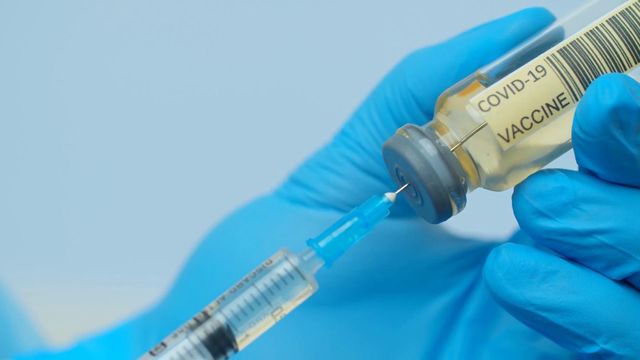Campbell University students helping provide COVID-19 vaccine to underserved communities
This article was written for our sponsor, Campbell University School of Osteopathic Medicine.
There are three COVID-19 vaccines currently approved for use in the United States. As each state begins to roll out its vaccine administration, there's a need for additional medical professionals to accommodate the demand.
In North Carolina, around 2.5 million doses of the vaccine have been given, putting the fully vaccinated count up to just under 900,000 people — which translates to 8 percent of people in the state. To boost that percentage, help is needed to administer the vaccinations, especially in smaller, rural communities that may not have access to robust healthcare systems.
AT UNC Southeastern Health, a partnership with Campbell University is helping the hospital roll out their COVID-19 vaccinations in Robeson County. In fact, the school even offered their ultra-low temperature freezers as additional storage for the medical center's Pfizer vaccines, increasing the hospital's capacity.
"We do face many challenges in Robeson County — we rank last in the state for health outcomes and health factors. We've been devastatingly hit by the COVID-19 virus, as many of our population is vulnerable," said Jason Cox, vice president and COO of UNC Southeastern Health. "That underscores our effort and need to get the COVID-19 vaccine out to as many people as possible so we can protect the vulnerable people in Robeson County."
UNC Southeastern Health is one of Campbell University's several partners in the state. At the hospital's Lumberton-based facilities, Campbell medical students are able to receive training and education from experienced medical professionals.
Fourth-year Campbell University medical student Bethany Croyle is using her experience to help Robeson County administer the vaccine to its residents. So far, Southeastern Health has administered over 11,000 vaccines to their patients.
"As medical students, we were really fortunate that our school advocated for us to be in the first round of people who were vaccinated. That allowed us to continue not only our education, but to continue helping provide medical care to patients in times when places are short-staffed," said Croyle. "We represent the next generation of physicians, and it's important for us to not only think about our future patients, but also to be leaders now. As someone about to start residency, I wanted to show all of the patients I see now that we are on the forefront of medicine, I endorse this, and I think it's really important."
While Croyle and her peers represent the next generation of physicians, they're being trained up to administer the COVID-19 vaccine by the medical field's current generation. Uma Pendem, chief resident of family medicine at UNC Southeastern, aids students in medical instruction while also introducing them to the Robeson County community.
During COVID-19, Pendem has been especially focused on advocating for the benefits of the vaccine and educating Robeson County patients, while also training students like Croyle to do the same.
"Some people are very hesitant because it's a new vaccine, and other people welcome it, because they've seen their family members affected, and they want to make sure that their family is not burdened by the symptoms. Part of being a healthcare provider is just bridging that gap in knowledge and understanding," said Pendem. "The research data for the COVID-19 vaccine is pretty incredible. It has a 95 percent efficacy rate in terms of protecting the participants, and it's been shown to have a great benefit in society overall."
In a smaller community like Robeson County, having trusted medical professionals endorse and advocate for the vaccine can help encourage residents to sign up. By preparing herself and Campbell students to answer questions, Pendem is doing vital work in community education.
"As residents, it's part of our learning and training to make sure that we're up-to-date on current literature. Through our own reading and understanding of what's going on with the virus and the vaccine, a lot of us have been able to take the vaccine, and because of our experience, we're able to pass on that knowledge and experience to our patients to let them know the process," said Pendem. "We got the two doses, this is what each dose entails, and this is how the vaccine works. Our patients are so receptive to it and they have plenty of questions, and we welcome any and all of the questions they have."
This project was supported by the N.C. HB 1043 COVID-19 Response through Campbell University, Inc. and the Campbell University School of Osteopathic Medicine Grant Agreement 25-00.
This article was written for our sponsor, Campbell University School of Osteopathic Medicine.











